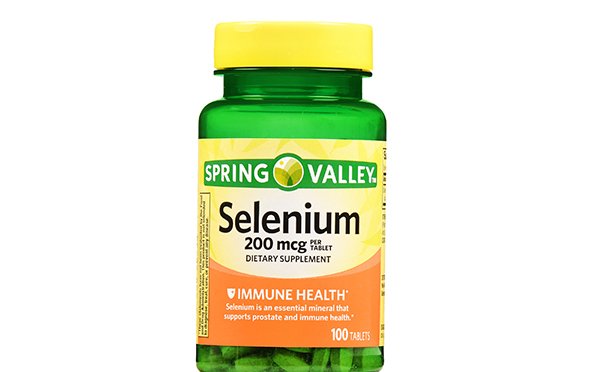Selenium is fundamental to good health
Good health is a precious blessing. But how does one attain good health and stay healthy? Eating a well-balanced diet is important, as is getting enough exercise and rest. Smoking is the worst thing you can do for your health and alcohol should only be taken in moderation. But when sickness, disease or old age strike, what else can one do to stay healthy?
A strong immune system is essential for good health. The immune system is the most complex system in the human body. It helps protect the body from viruses, bacteria, fungus and the other infections that make us ill. Almost all aspects of health and most diseases and conditions are directly affected by the immune system. Babies are born without a fully formed immune system. That is why babies get sick so often. The immune system takes three years to fully develop. That is a major difference separating infancy from child- hood. Immune function starts to decline after the age of sixty.
But when the immune system weakens many health problems can arise. Age is not the only thing that weakens our immunity. Most diseases depress our immune system and one illness sometimes leads to another. Influenza can lead to pneumonia and HIV can lead to many different opportunistic infections attacking the body. So what can a person do to boost their immune defenses? What is the secret of maintaining healthy im- munity? In one word - selenium.
The mineral selenium is the key element for the immune system. Selenium is the strongest natural antioxidant and a natural anti-inflammatory. Every cell in the body contains this element that helps cells stay clean, healthy and detoxified. Selenium is concentrated in the cells and organs of the immune system including the liver, spleen, kidney, thymus and thyroid glands because they have an increased need for selenium in order to do their job. Selenium is so basic to life it is found in almost every food we eat, but in extremely small amounts. Even most viruses and bacteria require selenium. When those germs infect you they attack your body’s selenium supply, lower- ing your immunity and damaging your health.
In her article “The importance of selenium to human health” in The Lancet medical journal, Dr. Margaret Ray- man explains that selenium is “fundamental” - absolutely basic - for good health.
But most people don’t get enough selenium through their diet. Dr. Rayman explains how selenium is important for immune function; to fight off viral infections; that it is very beneficial in pregnancy and breast feeding; and in reducing stress, depression and improving mood. She explains how it can reduce cardiovascular diseases including high blood pressure, heart attack and stroke; and can help against many skin conditions like eczema, acne, fungal infections and skin sores.
Selenium can help reduce the pain and discomfort of inflammatory conditions including arthritis, pancreatitis, and asthma. Finally, selenium is the strongest thing to help prevent cancer. If full strength 200mcg selenium tablets are taken daily for over five years, that can reduce all cancers by 37% and reduce death from cancer by half. Se- lenium helps keep the liver, kidneys, heart, lungs, brain and skin healthy and the immune system strong.
In a study by the Rwandan Ministry of Health of selenium against HIV in people who were not yet on ARVs, one 200mcg tablet of selenium slowed down HIV becoming AIDS by 48%. In a study by Harvard University in advanced AIDS patients in Nigeria, adding one tablet of 200mcg to a three-drug ARV therapy more than doubled the increase in CD4 count compared to ARVs alone. As one German scientist explained, when the body has enough selenium, im- munity will be strong; when there is not enough selenium, the immune system will be weak.
So how much selenium is enough? For a perfectly healthy young person 60mcg per day, the recommended minimum daily allowance is enough. But an older person or anyone com- bating disease requires more. They can easily get that by taking one 200mcg selenium tablet a day. Selenium tablets are very afford- able and are available at most local pharmacies. Howard Armistead is an AIDS researcher and Director of the Se- lenium Research Institute.




